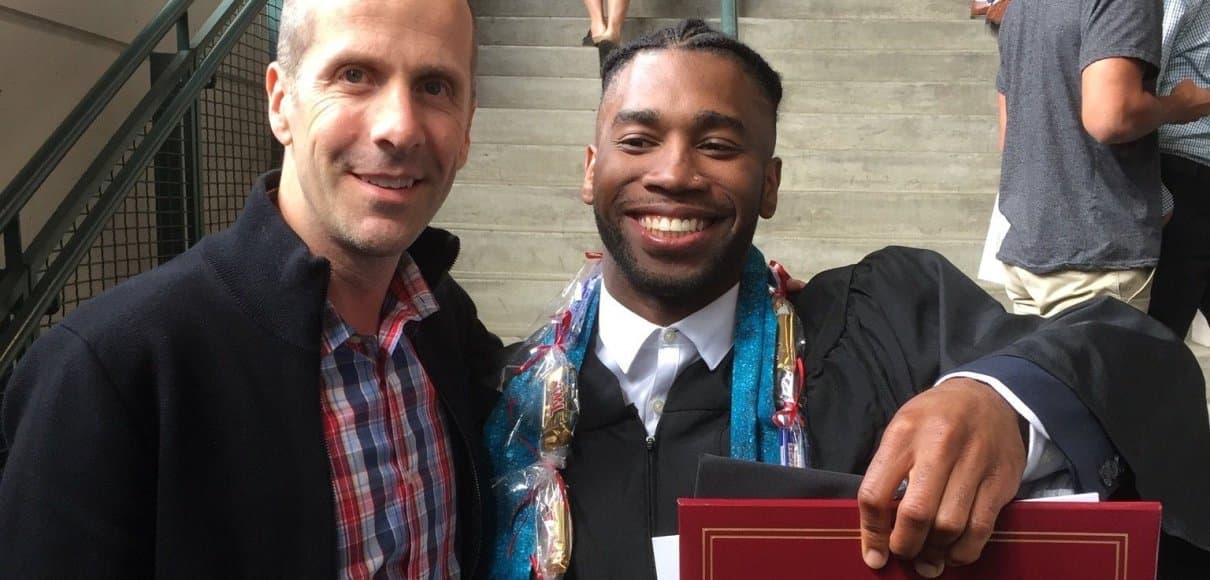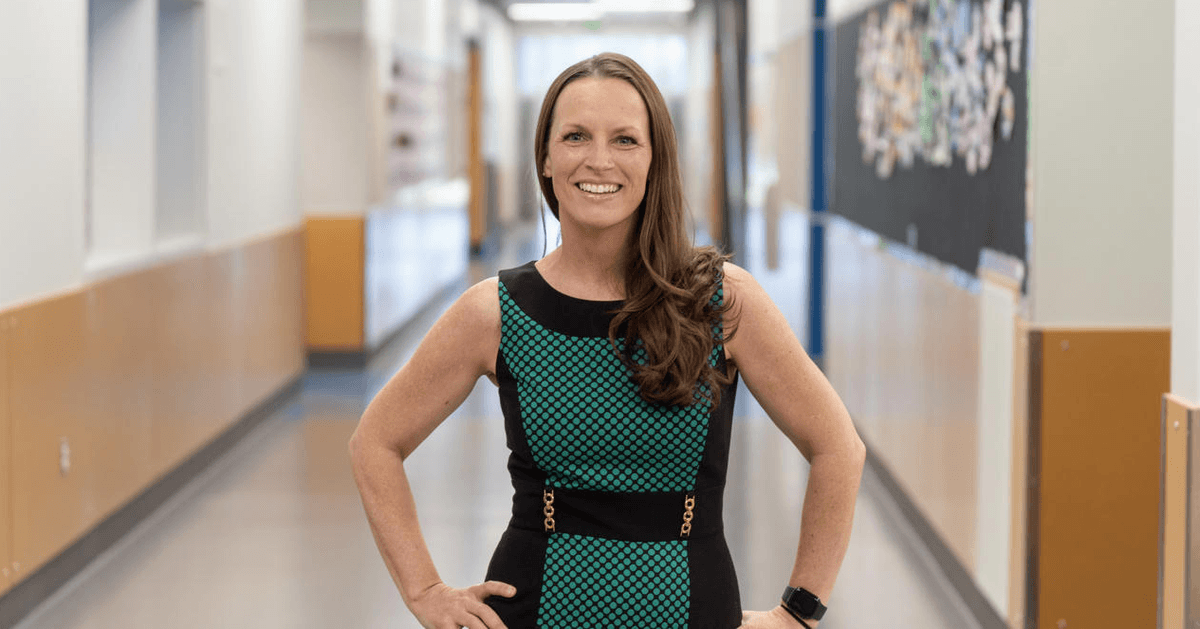Rick Newell ’93 has a vision to bring hope to Seattle’s most underserved youth. It’s a vision that only came to fruition after he left behind his career working for well-known tech companies in Colorado and Washington to pursue a bigger purpose for his life.
Newell took a substantial pay cut to work in the computer lab of the Rotary Boys & Girls Club in Seattle’s Central District, a predominantly Black community at the time, but his years working at the Rotary Club taught him valuable lessons about the challenges facing inner-city communities. The biggest issue Newell saw was a lack of positive male role models.
In 2012, he and his wife, Rebecca Roork Newell ’96, started Mentoring Urban Students and Teens (M.U.S.T.), a nonprofit organization for young, Black males. The organization was founded on a peer-to-peer model where M.U.S.T mentors are Black men who could relate to the struggles of younger Black youth.
After successfully launching M.U.S.T, Newell recognized the need for a new nonprofit focused specifically on youth in the foster care system. Michael, a foster care teen in Newell’s first M.U.S.T cohort, moved six times throughout the area, starting in Seattle and ending in a location south of Tacoma.
“The pain that Michael experienced because of his many moves was heartbreaking,” Newell said. Furthermore, kids who age out of foster care have no one. The statistics are unnerving.
“As many as 30% of Washington’s homeless grew up in foster care,” Newell said. “As much as 60% of those who are trafficked grew up in foster care. One study showed 18% of those who are in prison today grew up in foster care.”
In 2022, he and Rebecca founded a new nonprofit focused on finding young adults who grew up in foster care and offering them jobs to mentor foster care youth and be a constant figure in their lives.
With nods to the famous Route 66 that traverses the country, the mentoring program is named Route 21, for the Washington state highway that crosses multiple counties. Route 21 is designed to be an onramp to adulthood.
“The thing about Route 21 is we’ll follow you no matter where you go in the state,” Newell said. “If they move you to Bellingham, we can’t have breakfast with you once a week, but we’re going to be up there twice a month to hang out and see how you’re doing. We’ll be a constant in your life until you graduate.”
 During the school year, mentors and mentees meet weekly for breakfast, and twice a month for fun activities like movies, go-carting, and paintballing. The program also includes quarterly lessons on life skills where youth can learn about finances or mental and physical health.
During the school year, mentors and mentees meet weekly for breakfast, and twice a month for fun activities like movies, go-carting, and paintballing. The program also includes quarterly lessons on life skills where youth can learn about finances or mental and physical health.
Every year, M.U.S.T. mentors and mentees get to enjoy a weekend away from family and the city, so Newell plans to replicate this feature with Routes 21’s first cohort launching this summer.
“Our peer-to-peer model accelerates the trust factor,” Newell said. “Each match (mentor to youth) costs $20,000 per year, and you’re helping two people have a great chance to break the cycle of poverty, homelessness, trafficking, prison.”
Many success stories have emerged from the Newells’ work. DJ failed out of three community colleges before becoming a mentor. The experience transformed him as well as his mentee. DJ eventually earned a master’s degree in education and now teaches at a middle school. He is thinking about pursuing a Ph.D.
Newell applies the M.U.S.T. and Route 21 mission in his own life, too. He believes in the power of mentors and finds a new one for himself every year.
“The fact that God used us to build these nonprofits, that should not have happened,” he said. “There have been monumental hurdles to making that happen, and it was unbelievably hard, but God miraculously showed up so many times to show us we should keep going.”
GET INVOLVED
Are you interested in serving as a mentor to help Seattle’s most underserved youth? Find out more about what it takes to be a M.U.S.T. or Route 21 mentor.
Newell recently appeared in SPU’s Enduring Commitments video. Check it out!




